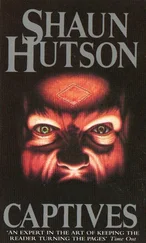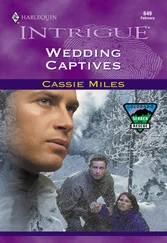Norman Manea - Captives
Здесь есть возможность читать онлайн «Norman Manea - Captives» весь текст электронной книги совершенно бесплатно (целиком полную версию без сокращений). В некоторых случаях можно слушать аудио, скачать через торрент в формате fb2 и присутствует краткое содержание. Год выпуска: 2014, Издательство: New Directions, Жанр: Современная проза, на английском языке. Описание произведения, (предисловие) а так же отзывы посетителей доступны на портале библиотеки ЛибКат.
- Название:Captives
- Автор:
- Издательство:New Directions
- Жанр:
- Год:2014
- ISBN:нет данных
- Рейтинг книги:3 / 5. Голосов: 1
-
Избранное:Добавить в избранное
- Отзывы:
-
Ваша оценка:
- 60
- 1
- 2
- 3
- 4
- 5
Captives: краткое содержание, описание и аннотация
Предлагаем к чтению аннотацию, описание, краткое содержание или предисловие (зависит от того, что написал сам автор книги «Captives»). Если вы не нашли необходимую информацию о книге — напишите в комментариях, мы постараемся отыскать её.
Captives
This is a moving account of a country shaken by communism and anti-Semitism and haunted by recent atrocities, from "a distinguished writer whose vision of totalitarianism is close to Kafka's cloudy menace, universal yet internalized" (Richard Eder,
).
Captives — читать онлайн бесплатно полную книгу (весь текст) целиком
Ниже представлен текст книги, разбитый по страницам. Система сохранения места последней прочитанной страницы, позволяет с удобством читать онлайн бесплатно книгу «Captives», без необходимости каждый раз заново искать на чём Вы остановились. Поставьте закладку, и сможете в любой момент перейти на страницу, на которой закончили чтение.
Интервал:
Закладка:
I stopped. I looked at them. They were listening closely. I asked them to think and to pronounce with a clean conscience.
— I will vote for expulsion! I said.
Out of all assembled, five arms abstained from voting. The freckled boy left the hall.
I presented the second case, and introduced the denounced, who spoke a great deal. This time, many more people had signed up to speak. I knew what some of them were going to say, and I interspersed the other unknowns among them. The balance oscillated. With his usual cordiality, the popular, long-fingered basketball player had attracted people’s sympathy. He spoke convincingly, in a slightly passionate way. The last among those signed up spoke in favor of expulsion. I would have to master the crowd and influence it. I embarked feverishly. Everyone was breathless, shifting in their seats. I saw the impatience with which those in the first rows listened, following my twists and turns, my nosedives, breaks, and rolls, my lightning strikes. The accused was somewhere in the middle of the auditorium. I couldn’t see him, and my madness in his favor seemed pointless if it wasn’t rewarded with some sign from him. When I concluded and sat down, the hall was completely surprised. They expected something more. They were looking at me in bewilderment, as if I hadn’t finished talking, and they smiled in confusion. I understood that I had sat down too quickly, like an idiot, giving the others a chance to refute me and knock me down. I sprang to my feet. I called for the vote. Convinced that it wouldn’t be noticed, I forgot to raise my own hand as well. My vote wouldn’t be marked by either side.
Having finished with the second case, I passed on to the third: the story of the staff officer. His son, the accused, barely had the strength to rise to his feet. He got tangled up in his answers, and didn’t seem to understand what was happening to him. Everyone thought they should follow me promptly and categorically. Not understanding what had happened to him, the child from the eight grade staggered from the hall. The crowd scattered and I stayed behind to explain myself.
— There was no other way of proceeding. . it would have been unconvincing. Everyone would have left with the feeling that something had been crammed down their throats: it would have been a formal acceptance, without effect.
They kept silent. The activist wasn’t talking. The director beside him wasn’t talking either. I detailed my motives. Everyone had hesitated over the first case. The second had been even more complicated. A person who accepts an unusual job for himself and goes to work in a salt mine without trying to find a way out is not straightforward, he is not a poor agonizing notary. Sensing that his lies would be used against him, the salt-mine worker’s son admitted with thrilling emotion that he had made use of his classmates’ ignorance of his antecedents in order to be regarded as one of them. But, he explained, he had lied not only because his father was now honestly paying for his sins, but also, more importantly, because he wanted to participate in the country’s new reality and contribute to its luminous future. Repeating his words, I was beginning to believe in the passionately declaimed clichés: I was free to do exactly the opposite of what I believed and to pronounce words that contradicted my actions. . charming discrepancies, a realm where I was no longer obliged to torment myself and keep my weak and vacillating shoulders straight. I could sneak off anywhere, like a slippery reptile. The games for cowards were beginning. A realm was opening itself to me, a game for losers and weaklings displaced from the real world, for which they had proved themselves unworthy. The inhabitants of this realm were masters of an existence of contretemps and counter-spaces and counter-movements, free at any moment to stop the words on their lips before they were spoken, even from the moment of their birth, to change them for others, and to forget these too, fascinated by the countless transitory masks in the limitlessness of the game, strengthened by every new dodge. And this meant that I was more convincing than the accused had been, more convincing than I had been a few moments earlier, there, in front of everyone. . I went on inventing other arguments, some stemmed from others, multiplying in zigzags that would suddenly come to smash, plunging me into another curve, a crazy, captivating wager. I had saved Caba, and now I was trying to save myself.
The autumn leaves raced after me. I kicked at them; they danced, raising themselves from the earth in short spirals wrapping me in swishing ribbons. Autumn meant twilight, and they were celebrating me, like a son dragged through dusk, with long convoys of black wings, and running beside me like the dead feathers of yesterday’s birds.
I had solemnly answered the activist. He was right to ask me why I had proposed Caba for the blacklist and then saved him. And I had replied that I had the right to bring the scoundrel before them, so they could choose if they wanted to forgive him or not. I had suspected that they would absolve him — and it was better for the public prosecutor to get his bearings quickly, as I had done, so that we — I and the organization — wouldn’t be in disgrace with the masses. The instructor went on listening to me suspiciously. He had no idea how the ribbon-like words raced, how they whistled, how the rocking winds blew me forward, one word setting off from the other or from all of them. My thoughts weren’t gushing from my eyes — they weren’t betraying me. They were hiding, rushing: one spark, a second, rapidly replaced, playing with me, their plaintive plaything, asleep under damp leaves, sliding through the air like a bird dreaming.
The windows were lit. Music was playing at the girls’ school. Wild hair, work boots heavy with mud, rough pullover — I shouldn’t have gone in. I remained on the threshold. The voices traveled in pairs. Somewhere at the end of the dream, a dark lunatic girl waited, her large eyes, black and patient. Through the partially opened door came vapor, breaths, perspiration, noises, giggles. I skimmed along the walls near the gymnastic equipment, shaking hands, greeting, smiling. Sweaters and skirts, short, narrow sleeves, narrow, white peasant leggings, flower-embroidered shirts — national costumes — huge work boots, crumpled neckties, uniform dresses enclosed in the white of timid collars, all of them huddled into a swarm.
— Are you looking for someone?
I turned at the sound of my classmate’s cordial voice. As we sat next to each other, his fingers kept time with the music as though somehow in time with events. He had greeted me easily, so I was only embarrassed at the start. There was no reason to reject his friendly smile. Everything was like before, as though nothing had happened. Those fine fingers went on juggling, and my classmate continued to dominate the conversation, a model of harmony between word and voice. It was remarkable how his eyes and lips served his thoughts. The same went for his body, hands, shoulders, throat. My classmate made himself the master of an agreeable closeness yet again. Our detour into small talk didn’t need to be prolonged: the chitchat might have become boring. At the critical moment, the point (that little blow from askance) would have to be driven home, the sharp edge of truth, glittering suddenly among pleasant chatter — the gesture that would lend a necessary trace of authenticity. He knew the scenario.
— Have you been having a hard time?
My classmate was discreetly thanking his savior. Naturally, if I hadn’t answered right away, he would have slipped away, and as far as possible.
A hard time? I’d been sustaining justice! I argued again, more convinced than an hour before, more convinced than an hour and a half before, and more convincing than he had been two hours before when he confronted the hostile crowd. I repeated his plea word for word. I hadn’t defended anyone, as I told him — conclusively — I had only revealed the assembly’s own hesitations, without tilting the balance, leaving them free to choose. Shaken by their trepidation, I had forgotten to vote myself. Then it was only a matter of his rising by my side and repeating the question to which no answer was expected.
Читать дальшеИнтервал:
Закладка:
Похожие книги на «Captives»
Представляем Вашему вниманию похожие книги на «Captives» списком для выбора. Мы отобрали схожую по названию и смыслу литературу в надежде предоставить читателям больше вариантов отыскать новые, интересные, ещё непрочитанные произведения.
Обсуждение, отзывы о книге «Captives» и просто собственные мнения читателей. Оставьте ваши комментарии, напишите, что Вы думаете о произведении, его смысле или главных героях. Укажите что конкретно понравилось, а что нет, и почему Вы так считаете.












